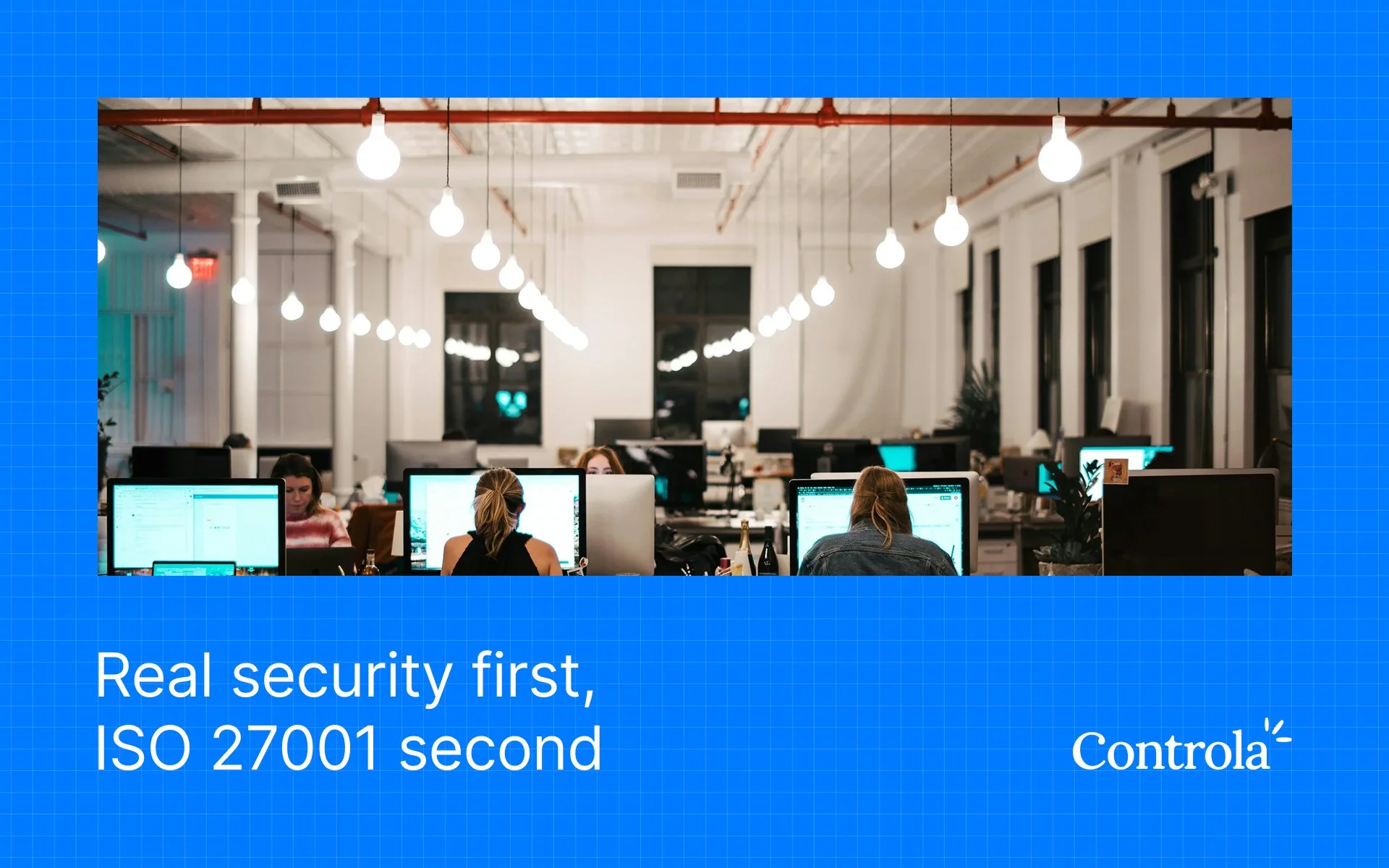Real security first, ISO 27001 second
The certification panic trap
It happens all the time in early-stage B2B startups. a big prospect asks a security question, and suddenly the whole team is rushing into an ISO certification they never planned for. And it makes sense. When you’re chasing that first big deal, everything feels urgent. A question pops up: Are you ISO 27001 certified? You’re not. You say you’re “working on it,” and off you go.
But hold on.
Most customers simply want reassurance
It’s easy to confuse the two. Certifications like ISO, SOC 2, or NIST can be one way to build trust, but they’re rarely the only way. In our experience, these questions show up on checklists more often than in actual requirements. “Do you have X?” doesn’t always mean “We can’t move forward without X”. In reality, an ISO certification won’t say more than clear, verifiable proof that your company is secure where it matters most, for example, evidence of enforced multi-factor authentication, strong access controls, and active threat monitoring.
Real security starts with people and processes
Security doesn’t begin with documentation, audits, or compliance frameworks. It starts with how your company manages access, protects accounts, enforces two-factor authentication, and detects and responds to threats. These are foundations you can put in place from day one, and they do far more to protect you than ticking boxes for the sake of a logo on your website.
Be honest and confident
It’s completely valid to say:
“Our priority is protecting your data. We already have real, effective safeguards in place and we’re happy to show you how we work. Certification is something we’ll pursue when it makes business sense, not as a first step.”
That kind of answer can be more powerful than promising something you haven’t started, especially when it shows that you’re focused, thoughtful, and not faking your way through a security questionnaire.
Certifications matter, but they shouldn’t be the very first step.
We’re not saying ISO 27001 and the likes of it don’t matter. They do, especially later on when you’re entering more regulated markets, dealing with procurement teams, or partnering with enterprise and public sector clients. But the best certifications are built on solid foundations. They should reflect work you’re already doing, and not replace it. And certainly not distract you from it.
Protect first. Certify later.

